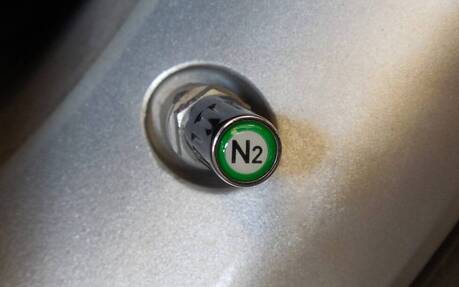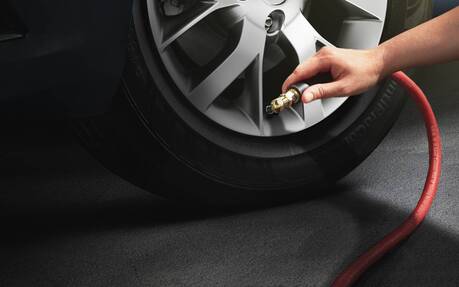Should You Put Nitrogen in Your Tires?
We’ll say it again: improperly inflated tires can have a significant impact on your driving, your safety, and your fuel consumption, not to mention the resulting premature wear. In Canada, an estimated 25% of all road vehicles have at least one tire with a pressure that’s too low by 20% or more.
That’s why regularly checking and adjusting your tires’ pressure is crucial. Please don’t wait until it’s time for your seasonal tire change to have a technician do it!
- Also: All-Wheel Drive vs. Winter Tires: Which One is Best?
- Also: Top 10: Best Winter Tires for Cars and Small SUVs, 2021-2022
During your visits to the garage, have you ever been asked if you wanted your tires filled with nitrogen? Probably. But what’s the advantage?
At equal pressures, a nitrogen-inflated tire will not perform better than a tire filled with “normal” air, which is made up of 80% nitrogen by the way, but will remain inflated over a longer period.

The reason for this is the size of the nitrogen molecules, which are bigger than oxygen molecules, and therefore less likely to escape through gaps or vary with temperature changes. This ensures a more uniform and stable tire pressure, according to Ok Tire, and is especially useful in low-profile tires.
Nitrogen also helps reduce moisture inside the tire, which can cause premature deterioration. Interestingly, the aviation and trucking industries have been using nitrogen for years, notably to reduce the risk of tire failure due to overheating.
“However, despite these benefits, one should not assume that using regular air is unsuitable, says CAA-Québec. When done properly, regular tire pressure maintenance with air will produce results similar to nitrogen inflation in terms of fuel consumption and pressure retention.”
If you prefer the nitrogen option, it will cost you an additional 4 to 6 $ per tire. The organisation also recommends dealing with a conscientious technician who will be able to use the nitrogen measuring device properly, because the gas’ concentration inside the tire must be at least 95% to be effective.
